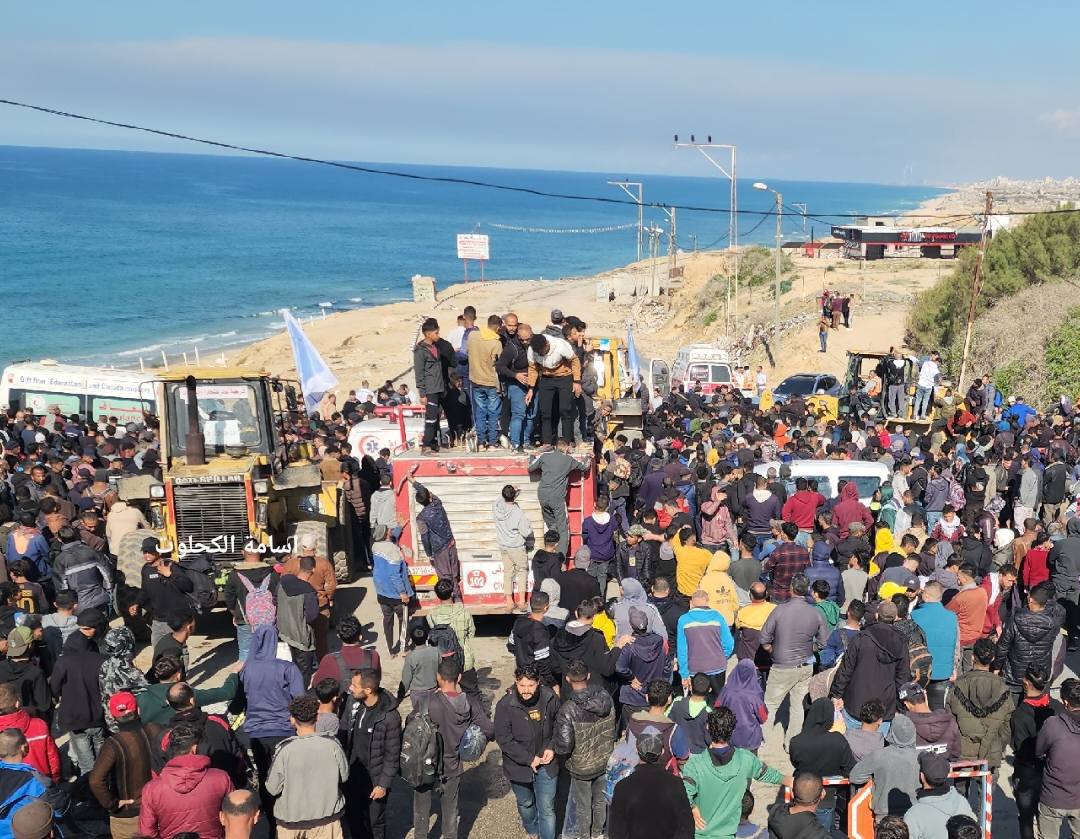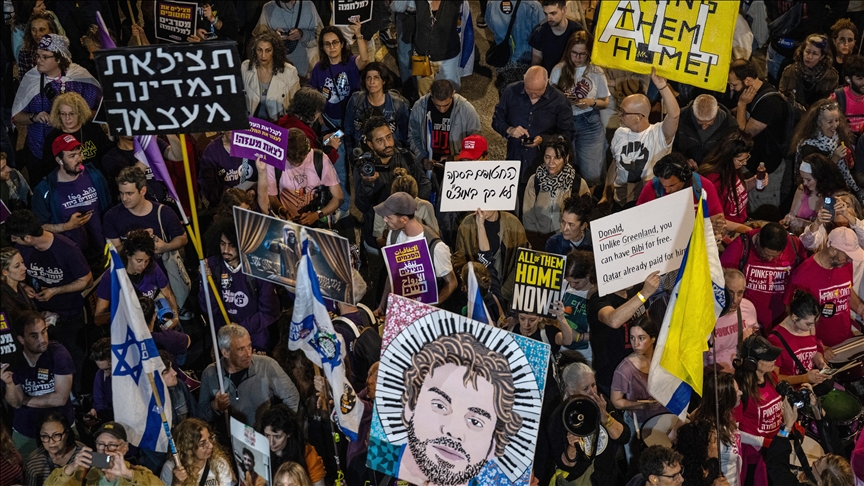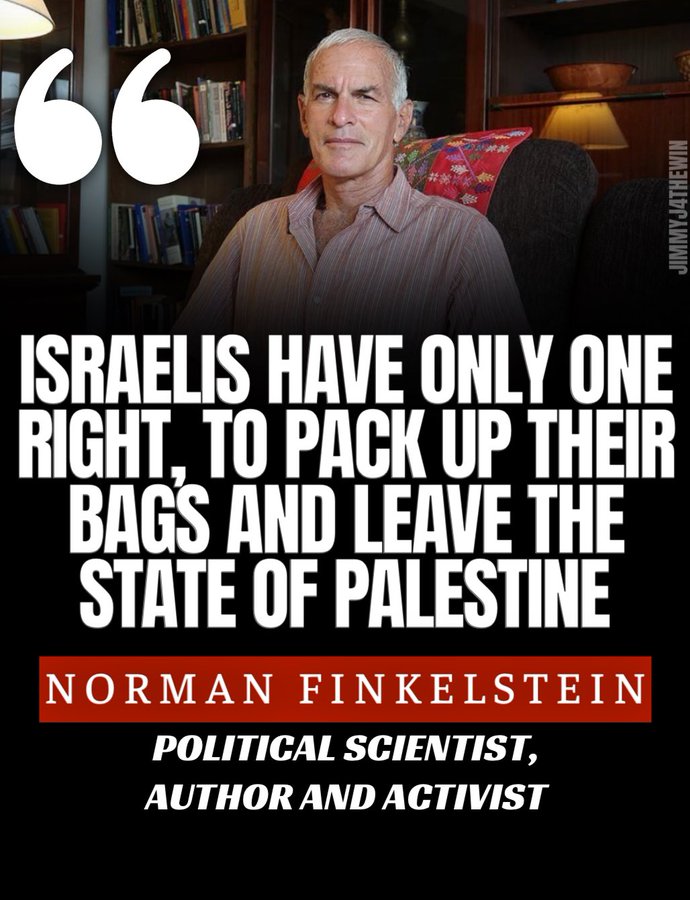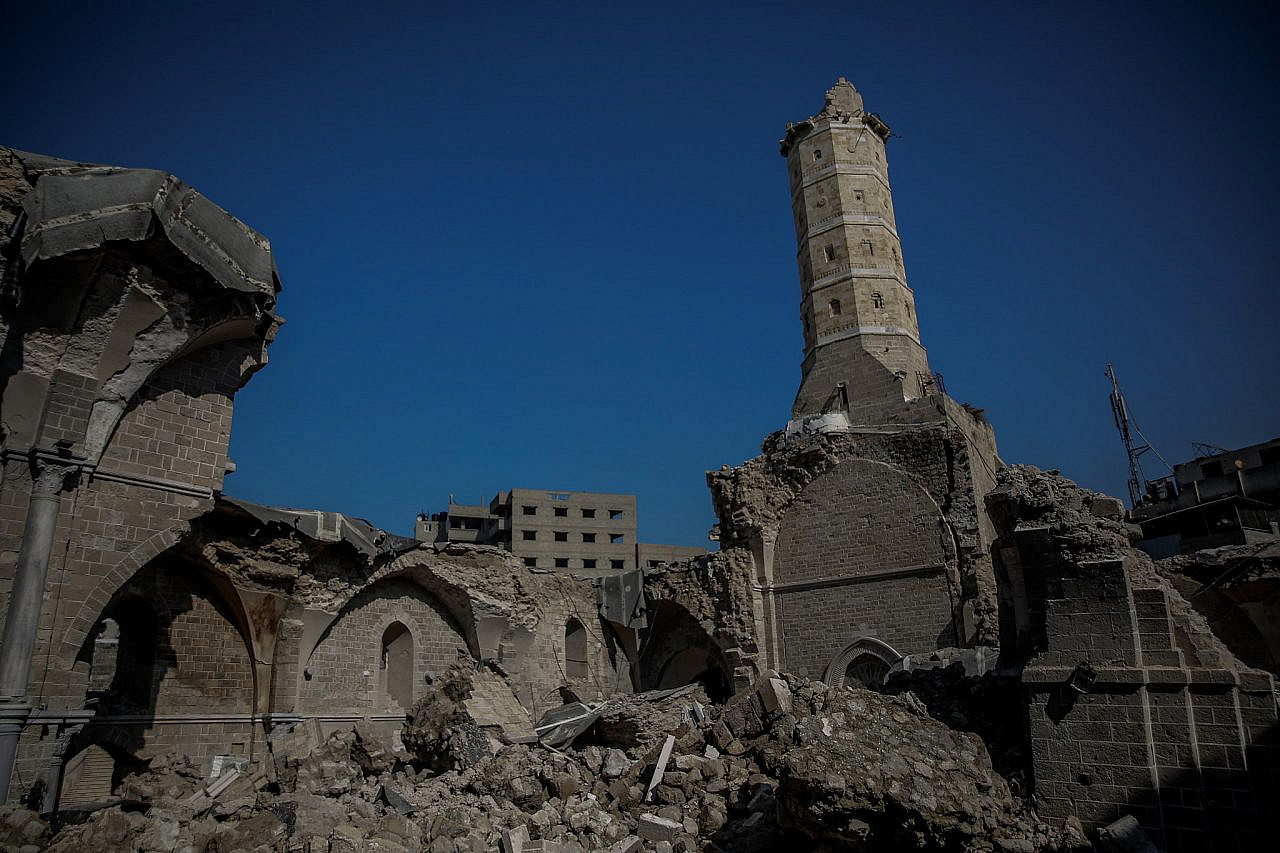
Displaced from Gaza, Noor Alyacoubi’s father longs not just for home, but for the fabric shop that defined his life—a place where his dreams, labor, and legacy took shape.
In every phone call I have with my mother—when we talk about our well-being—she always mentions how much my father misses Gaza. He longs for everything: the home, the air, the streets, but most of all, his work.
My father has owned a small, old-fashioned fabric shop on Omar Al-Mokhtar Street in the heart of Gaza City for decades. The shop is simple and unadorned, yet filled with vibrant fabric rolls that create a warm, cozy atmosphere. It’s a place where time seemed to slow down, where each day was marked by the rustle of fabric.
Since his twenties, this shop has been my father’s haven—a place where he found peace, surrounded by fabric and the rhythm of his work. Despite his formal education at Cairo University, where he graduated with a degree from the Faculty of Commerce in the 1970s, my father chose a different path. He turned down many tempting opportunities abroad—lucrative job offers and study programs—to follow in his father’s footsteps in the fabric trade. He was determined to stay in Gaza, to build a life there, even though the world outside offered him broader horizons.
For as long as I can remember, my father never took a day off—not even on holidays or special occasions. “It’s more important than anything else,” he would say to me and my siblings whenever we asked him to take a break. “It’s our livelihood—our main source of income.”
We used to think that if he took a day off, he would finally rest and relax, but as I grew older, I realized that his work was more than just a job. It wasn’t about the money alone. It was his refuge, his escape from the world outside, a place where he could lose himself in the work that brought him comfort and fulfilment.
Over the years, he worked tirelessly to grow the business, eventually making it one of the most well-known and enduring fabric shops in Gaza.
People who knew my father as the owner of Alyacoubi fabric shop would speak highly of both the shop and its owner, praising not only his quality products but also his honest, humble character. “Your father is like a second father to me,” a tailor once said to me. His dedication wasn’t merely about financial gain; he wanted to build a reputation in Gaza City. He wanted his name to be synonymous with trust and excellence, and he succeeded in doing so.
Even after losing our home in an Israeli airstrike in March 2024, my father still counts the days until he can return to Gaza. “I mourn being away from my shop more than I mourn the loss of our home,” he once told me during a phone call.
The house, of course, was dear to him, but the shop was his life’s work. It was a reflection of who he was, of the years he’d spent there, of the people who had walked through its doors, and the community he had built around it.
This shop was inherited from my grandfather many decades ago, and my father’s bond with it runs deep. It’s not just a place of business; it’s a cornerstone of our lives. It’s where he poured his energy, his time, and his heart into providing for us. My siblings and I have always felt connected to the shop, too.
It wasn’t just about the money it provided—it was about the life it allowed us to have. The sacrifices he made in that shop gave us everything we needed to succeed. It’s where the wrinkles on his face deepened, where his sacrifices shaped the life we now live. It’s why we received a good education, the opportunity to strive for excellence, and the chance to create better lives for ourselves. That shop is our legacy, our foundation. It’s our name, our reputation in Gaza City.
My father used to be an energetic early riser who relished his morning routine—having breakfast, drinking his coffee, and heading straight to work. He spent eight hours a day in his shop, even on weekends, maintaining that routine without fail, without complaint.
But since being displaced to Egypt, his days have turned upside down. He stays up all night, staring at the ceiling in frustration, then sleeps in late. “Why should I wake up early?” he says whenever I ask. “I’m not in Gaza.”
It’s heartbreaking to see how the absence of his shop, the place where he had poured decades of his life, has changed him. The sense of purpose he once had, the rhythm of his daily life, has been shattered. Now, he struggles with a sense of aimlessness, and the simple joy of waking up early, of having a routine, has evaporated.
The devastation of being in a foreign country, far from everything he once owned, uncertain if or when he will ever return to what he built, is wearing on him deeply.
“He’s changed so much. He seems burdened, always in a bad mood,” my aunt told me after visiting my father in Egypt just a few days ago. The man who used to light up a room with his energy and optimism now seems weighed down by a grief too heavy to carry.
When the ceasefire talks began in November 2024, he called me with a hopeful tone. “We’re going to spend Ramadan in Gaza, Noor!” he said, full of optimism about the possibility of returning home. His eagerness was palpable, and for a brief moment, it seemed like a dream that could finally come true.
A ceasefire was agreed upon, and the issue of returning displaced people to northern Gaza seemed resolved. But the Rafah crossing remained a major obstacle, one that still looms large and keeps the dream of returning just out of reach.
As Israeli and American threats loomed, threatening to block the return of displaced people and cut off the possibility of returning to Gaza, my father’s hope has turned into desperation. The nightmare that he might never be allowed to return to Gaza is consuming him. The fear of losing everything he once worked so hard to build has become his constant companion.
Despite everything he has lost, his attachment to his shop and his homeland remains unwavering. “I want to come back. I want to return,” he repeats, each word heavy with longing and desperation. He clings to the hope that, one day, he will step back into that shop, into the life he knew.
Since October 2023, my father’s fabric shop has been closed. The owner misses his shop, and the shop misses its owner. Every day, the empty shelves and the idle rolls of fabric seem to echo his absence. In some ways, it feels as if both the man and the shop are waiting for the moment when they can be reunited—when the door to the shop will open again, and the hum of life can continue in the place where it all began.
(The Palestine Chronicle)

– Noor Alyacoubi is a Gaza-based writer. She studied English language and literature at al-Azhar university in Gaza City. She is part of the Gaza-based writers’ collective We Are Not Numbers. She contributed this article to The Palestine Chronicle.







